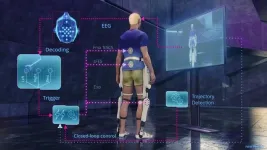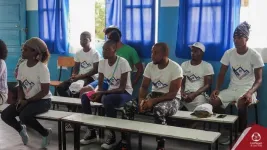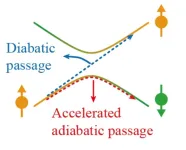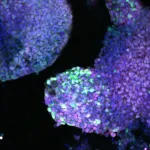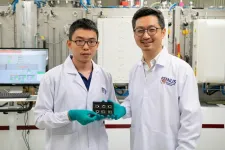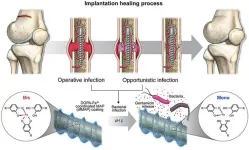The IRCCS San Raffaele Hospital and the Vita-Salute San Raffaele University announced the launch of a long-term partnership with the recently established Nicolelis Institute for Advanced Brain Studies of the Brazilian Alberto Santos Dumont Association for Research Support (AASDAP, www.aasdap.org.br) aimed at creating a state-of-the-art Neurotech Hub on their campus in the city of Milan. Resulting from a two-year planning process, that included the development of a comprehensive Master Plan, the San Raffaele Neurotech Hub will be the first initiative of this kind in Europe focused on deploying large-scale modern neurotechnologies and neurorehabilitation protocols, based on the employment of a novel and generic non-invasive brain-machine interface (nBMI) approach (Figure 1). This nBMI will serve as the foundation of multiple neurorehabilitation protocols and therapies targeting patients suffering from a variety of neurological disorders, such as spinal cord injury, Parkinson’s disease, stroke, multiple sclerosis, and chronic epilepsy.
It is estimated that more than one billion worldwide suffer from some sort of brain disorder, including both neurologic and psychiatric diseases. By the 2030s, the global cost for treating this massive number of patients may reach close to $6 trillion. Therefore, new safe, clinically efficient, and affordable therapies and neurorehabilitation technologies are needed to address the long-term needs of such patients. For the past 20 years, the repeated demonstration that it is possible to seamlessly link human brains to robotic, electronic, or virtual devices, through so-called brain-machine interfaces (BMIs), to create neuroprosthetic devices and establish innovative neurorehabilitation protocols, has emerged as a powerful new therapeutic and neurorehabilitation approach to match this major health care challenge worldwide. Assessing and taking advantage of the clinical potential of nBMIs will be the main mission of the recently established San Raffaele Neurotech Hub.
Initially, the San Raffaele Neurotech Hub will take off with the central mission to provide patients all over Italy and Europe with full access to modern neurorehabilitation protocols and neurotechnologies, originally developed by a multidisciplinary Brazilian research team led by Dr. Miguel Nicolelis, a neuroscientist and Professor Emeritus at Duke University Medical Center in the United States. In the late 1990s, Dr. Nicolelis, together with Dr. John Chapin, invented the neurophysiological approach that they named brain-machine interfaces. For the past 25 years, Dr. Nicolelis and his research teams in the US and Brazil have developed multiple clinical applications based on different architectures of BMIs combined with numerous tools derived from the fields of virtual reality and robotics. Dr. Nicolelis and Dr. Alan Rudolph envisioned and authored the Master Plan for the project. Dr. Nicolelis will now serve as a visiting professor of the Vita-Salute San Raffaele University and co-lead this Brazilian-Italian collaboration.
Developed originally for the demonstration of the first brain-controlled lower limb exoskeleton, which allowed a Brazilian paraplegic patient to deliver the opening kickoff of the 2014 FIFA Football World Cup, the neurorehabilitation protocols that will be implemented at the Center for Neurorehabilitation of the San Raffaele Neurotech Hub are all based on combining nBMIs, virtual reality, robotics and, more recently, non-invasive neuromodulatory techniques (Donati et al, 2016; Shokur et al, 2018; Selfslagh et 2019; Nicolelis et al 2022).
According to Dr. Nicolelis “It is a dream come true to be able to establish this collaboration with one of the most prestigious hospitals in the world. This international partnership will allow patients suffering from a variety of devastating brain disorders to access state-of-the-art safe, affordable, and efficacious technologies based on BMIs. I am sure my good friend, John Chapin, who co-invented this technology with me, would be proud of this announcement. We hope to reach a large number of patients in the next few years and demonstrate categorically that non-invasive BMIs, combined with other modern technologies and data tools, will become a main approach to treat neurologic and psychiatric diseases in the near future.”
Professor Enrico Gherlone, Rector of the Vita-Salute San Raffaele University, comments: “We are very pleased to announce the start of the Neurotech Hub strategic project, which is the result of the partnership we have established with Professor Nicolelis and his team. Following the implementation of a two-year master plan, the Neurotech Hub is ready to enter the operational phase, ensuring that in the coming years we can pursue our strategic vision: neurotechnologies as a new and mandatory advanced medicine, with potential applications in improving both motor and cognitive health, as well as addressing neurological and psychiatric disorders. Undoubtedly, all of this represents a crucial opportunity, especially for our residents, providing them with the chance to engage with cutting-edge technology that is unique in Europe”.
Engineer Marco Centenari, Chief Executive Officer of IRCCS San Raffaele Hospital, comments: “The new Neurotech Hub represents one of the main strategic projects of our Institute. The collaboration with Professor Nicolelis is tangible proof of our commitment to supporting a long-term effort aimed at developing increasingly translational medicine. Nicolelis' group will be supported by a team of excellent neurologists from our hospital led by Professor Massimo Filippi, who has internationally recognized expertise in testing new therapies for neuroinflammatory and neurodegenerative diseases, as well as in the development of new biomarkers to prevent and treat such diseases more effectively. We are confident that in the near future, we will be able to further advance a transdisciplinary field such as that which supports neurotechnological development, a valuable aid for healthier neuro-aging”.
In addition to a Center for Neurorehabilitation, the initial phase of the San Raffaele Neurotech Hub also contemplates the establishment of a Neurodata Laboratory and a new Neurotelemedicine Initiative. Moreover, a series of educational initiatives are also planned, including the creation of a comprehensive Neurorehabilitation Training Program for health care professionals, a global course on BMI, an International Undergraduate Fellow’s program and eventually a Graduate Program in Neurorehabilitation and BMI.
Regarding the establishment of such a comprehensive and unique international scientific and clinical partnership, Dr. Rudolph said: “We are excited to launch this program to help patients with neurological conditions and extend our work in innovative rehabilitation techniques that utilize new concepts and protocols to help those in need, and train the next generation of practitioners.”
The partnership with the San Raffaele Hospital and University is the first international initiative developed under the auspices of the Treat 1 Billion Project created by the Nicolelis Institute for Advanced Brain Studies. The central goal of this project is to deploy worldwide multiple neurotechnologies and therapies based on safe, efficient, and affordable non-invasive BMIs, in order to reach large numbers of patients suffering from devastating brain disorders. For that, the Nicolelis Institute intends to establish regional neurotech hubs on all continents.
*****
Contact in Brazil
Valéria Masson (+55 11) 95651-7474 / Nathalia Oliveira (+55 11) 94313-4977
Email: nicolelis@nr7.ag
Contact in the US
Susan Halkiotis
Email: susan.halkiotis@gmail.com
END
